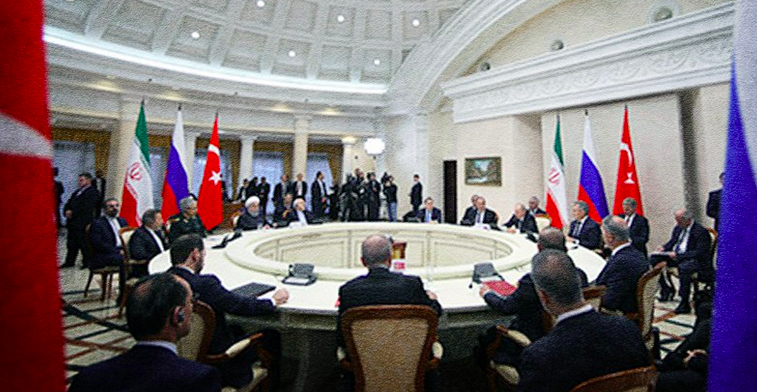From Cyprus over Syria to the Caucasus.
From Cyprus over Syria to the Caucasus.
Following Syrian Foreign Minister Esad Shaybani’s visit to Moscow on July 31–August 1, speculation has grown that Russian military patrols may soon return to Syria’s southern regions. Russia’s influential daily Kommersant ran the headline “Syria Misses Russian Soldiers,” reporting that Damascus has asked Moscow to redeploy troops to help guard its borders.
According to the paper, the Syrian government requested Russian patrols to resume operations in the southern provinces, as they did until the fall of Bashar Assad in December 2024.
When the Assad government fell, Israel occupied the Golan Heights and established bases and outposts in the south. In recent months, the Israeli army has carried out cross-border operations, arbitrarily detaining Syrian citizens.
Working in coordination with the Syrian Democratic Forces (SDF), Israel has also backed separatist Druze groups in Sweida, blocking the Syrian army’s intervention there. In a show of force aimed at Damascus, Israel struck the General Staff headquarters on Umayyad Square, one of the capital’s most crowded civilian areas.
UWI author, historian, and political scientist Associate Professor Mehmet Perinçek shared his evaluation with us.
—————————————————————————————————————————————-
The world remains sharply divided: on one side stand the US, Israel, and the Atlantic bloc, which view Eurasian countries as obstacles and take steps to weaken and fragment them. Recent developments also confirm this.
Countries targeted by this bloc recognize that they cannot safeguard their territorial integrity and national interests by relying solely on their own strength. Given the scale of the adversary, the only viable path is to form international alliances.
What we see in Syria is not far from that necessity. After Shara came to power, his government pursued a hostile policy toward Iran but took care not to confront Russia directly. For instance, Russian bases in the country were left intact. Yet Damascus maintained a cautious distance from Moscow. But now the Shara administration appears to have understood that Syria’s territorial integrity requires building a counterforce equal to the adversary it faces.
Syria could mount almost no resistance against Israel
Israel continues to expand occupation in Syria. Following the change of government in Damascus, Israel targeted air bases and arms depots, and struck the General Staff headquarters and the Presidential Palace area. These were clear warnings to the Shara administration. The country could mount almost no resistance to the occupation and attacks. It is not realistic to expect that Syria can withstand Israeli aggression alone.
PYD/SDF/YPG remains outside Damascus’s authority
Another related point is that PYD/SDF/YPG remains outside Damascus’s authority. At first, they projected a semblance of submission as they were laying down arms and appearing to integrate with the central government. But it soon became clear that they were acting independently and disregarding directives from PKK leader Abdullah Öcalan. The involvement of Israel and the US pushes these groups away from Syria’s territorial integrity, and this forces the Shara government to seek new alliances.
Back to the Astana process
If Damascus truly aims to preserve its territorial integrity, it will eventually have no choice but to return to the Astana process. There is no alternative, since Israel and the US will not abandon their intentions over the region. Syria’s only path lies in cooperation with Türkiye, Russia, and Iran. With the country’s territorial integrity under threat, even hostility toward Iran can only be sustained within narrow limits.
What matters at this stage is not a symbolic handshake between Shara and Putin, but a genuine strategic partnership. For this to materialize, Türkiye must assume a leading duty with a comprehensive and workable strategy.
Trump Route = Netanyahu Route
Turning to another front, Syria’s territorial integrity cannot be safeguarded if the so-called “Trump Route” is allowed to shape the South Caucasus. This would place Türkiye against Russia, Iran, and China, while empowering the US and paving the way for Syria’s eventual fragmentation. The “Trump Route” also means the “Netanyahu Route” or “Israel Route”. If this is to happen, Israel will gain a foothold in the South Caucasus, expand its influence, and entrench its long-term plans. In that scenario, defending Syria’s territorial integrity would become nothing more than rhetoric.
For this reason, the Turkish government is urged to reject Washington’s “carrots,” and remain vigilant against the US-Israel’s projects. Otherwise, Türkiye risks losing credibility and taking the necessary steps in Syria will be more difficult.
“Kurdistan and Syria under Turkish protection”
The same dynamics applies to other pressing issues, such as Ukraine, the Eastern Mediterranean, and the Turkish Republic of Northern Cyprus. Just like in these fronts, unless a broad international alliance is forged against Atlantic strategies, Syria’s position will remain vulnerable. The core issue is not simply whether Shara and Putin shake hands, but whether Türkiye defines its own strategy, breaking away from policies aligned with the US. This means rejecting projects imposed by the US like “Kurdistan under Turkish protection” or “Syria under Turkish protection.”

















Leave a Reply